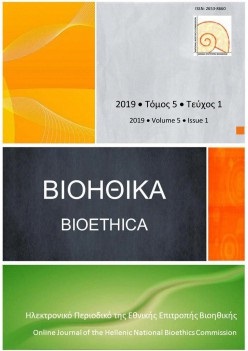Bioethics in Education

Abstract
During recent years, bioethics have become increasingly important as it has become clear that citizens of all ages will be called upon to take ethical decisions about the use of science and technology at some stage of their lives. Research shows that there is a global agreement on the need to teach more of these ethical and social issues related to science and technology at all levels of education.
This article attempts to investigate the importance and role of bioethics in secondary and undergraduate university education. Examples of primary and secondary education curricula, their goals and their contribution to improving students' understanding of the different aspects of bioethics are presented. Then, it is attempted to review the situation of bioethics in universities curricula. The article analyzes the different philosophies of approaching bioethical education, its relation with human rights and compares the advantages and disadvantages of the teaching strategies of integration and specialization.
In conclusion, it seems that bioethics is worthwhile being joined together with other disciplines and integrated into a wider framework of effective and informed decision-making skills, whether the person is a health professional or a modern citizen.
Article Details
- How to Cite
-
Γλυκοφρύδη (Alexandra Glykofridi) Α., & Ζαπουνίδου (Maria Zapounidou) Μ. (2019). Bioethics in Education. Bioethica, 5(1), 13–29. https://doi.org/10.12681/bioeth.20833
- Section
- Original Articles

This work is licensed under a Creative Commons Attribution 4.0 International License.
Authors who publish with this journal agree to the following terms:
- Authors retain copyright and grant the journal right of first publication with the work simultaneously licensed under a Creative Commons Attribution CC BY 4.0 License, which allows for immediate free access to the work and permits any user to read, download, copy, distribute, print, search, or link to the full texts of articles, crawl them for indexing, pass them as data to software, or use them for any other lawful purpose. Appropriate credit must be given by citing the author(s) and the original publication in this journal.
- Authors are able to enter into separate, additional contractual arrangements for the non-exclusive distribution of the journal's published version of the work (e.g. post it to an institutional repository or publish it in a book), with an acknowledgement of its initial publication in this journal.
We encourage authors to deposit their articles, as well as data underlying the publications, in institutional and/or other appropriate subject repositories.
Bioethica permits and encourages authors to archive the final publication pdf in institutional (e.g. the repository of the National Hellenic Research Foundation) or other appropriate subject repositories (e.g. SSOAR repository for social sciences), in compliance with institutional and/or funder open access policies, after publication in the BIOETHICA. Authors must provide bibliographic details that credit publication in the journal, as well as related funding details (when applicable).
Lists of institutional and other subject-based academic open access repositories can be found listed by country at the registry http://opendoar.org/countrylist.php
If your institution does not possess a repository you may deposit a copy of your paper at no cost with www.zenodo.org , the repository supported for open access research in the EU by the European Commission, through the project OpenAIRE (www.openaire.eu )


